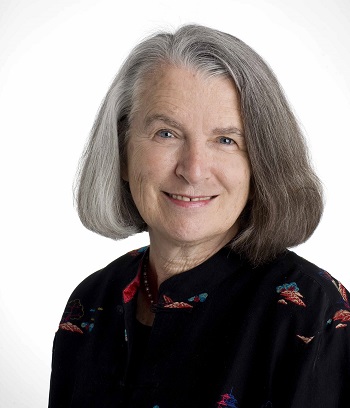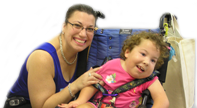2018 DMCHWD Grantee Virtual Meeting: How to Tell Your Program's Story
| Download |
|
|
12:30 p.m. - 3:30 p.m. ET
Location: Webinar
![]() About this Webinar
About this Webinar
This annual meeting was an opportunity for Division of Maternal and Child Health Workforce Development (DMCHWD) grantees to convene and network around a cross-cutting topic of interest. The meeting was hosted by AUCD's Interdisciplinary Technical Assistance Center on Autism and Developmental Disabilities (ITAC).
What was the purpose of the meeting?
The meeting addressed how to compose and share your program's story from a high-level perspective, emphasizing effectiveness, impact, and interaction with key audiences. It also underscored the value of building and establishing relationships with decision-makers, state agencies, community organizations, and more.
Keynote Speaker: Dr. Deborah Klein Walker
 Deborah Klein Walker, EdD, a behavioral sciences researcher, public health leader, and advocate for public health and social justice, has more than 40 years of experience conducting research and evaluation in community settings, and developing and implementing programs. policies and system changes at the local and state levels, She was Vice President and Senior Fellow at Abt Associates for 13 years after spending 16 years at the Massachusetts Department of Public Health, where she was the Maternal and Child Health Title V Director, Acting Director for Substance Abuse Services, and Associate Commissioner for Programs and Prevention. Prior to state service, she was a faculty member for over a decade at the Harvard School of Public Health and Harvard Graduate School of Education.
Deborah Klein Walker, EdD, a behavioral sciences researcher, public health leader, and advocate for public health and social justice, has more than 40 years of experience conducting research and evaluation in community settings, and developing and implementing programs. policies and system changes at the local and state levels, She was Vice President and Senior Fellow at Abt Associates for 13 years after spending 16 years at the Massachusetts Department of Public Health, where she was the Maternal and Child Health Title V Director, Acting Director for Substance Abuse Services, and Associate Commissioner for Programs and Prevention. Prior to state service, she was a faculty member for over a decade at the Harvard School of Public Health and Harvard Graduate School of Education.
She currently is an Adjunct Professor at the Boston University School of Public Health and at Tufts University School of Medicine. She is the Immediate Past President of the Global Alliance for Behavioral Health and Social Justice (formerly, the American Orthopsychiatric Association); a Board Member and President of Family Voices; a Board Member of the Institute for Community Health and the Cambridge Health Alliance Foundation and the Editorial Board of the Maternal and Child Health Journal. She is a former president of the American Public Health Association and the Association of Maternal and Child Health Programs; a founder of New England SERVE and the Research Consortium on Children with Chronic Conditions; a former Board Member of the Massachusetts Public Health Association and Healthy Mothers Healthy Babies; a former Trustee of the Cambridge Health Alliance and chair of its Cambridge Health Department subcommittee.
Dr. Klein Walker's slides and transcript of her presentation are available to download on the right.
Three Programs: Highlighted Examples
To highlight Dr. Klein Walker's presentation, three (3) DMCHWD grantees shared their examples during the webinar. You can view the YouTube recording of the presentation. Their slides and attachments are located on the right.
The three programs were:
- Leadership Education in Adolescent Health (LEAH): MCH H.O.P.E.S. (Birmingham, AL)
- Leadership Education in Neurodevelopmental and Related Disabilities (LEND): Cincinnati Children's Hospital (Cincinnati, OH)
- Healthy Tomorrows: Clinic in the Park (Santa Ana, CA)
Group Discussions
Independent discussion: Use the template provided on the right to begin applying learned concepts to tell your program's story. This can be done either individually or as a group at your site.
Interactive discussion: Participants used the template on the right to discuss their takeaways during the presentation. A summary of notes from each breakout group is provided.
Please contact Christine Liao at AUCD if you have questions
or would like additional information.








